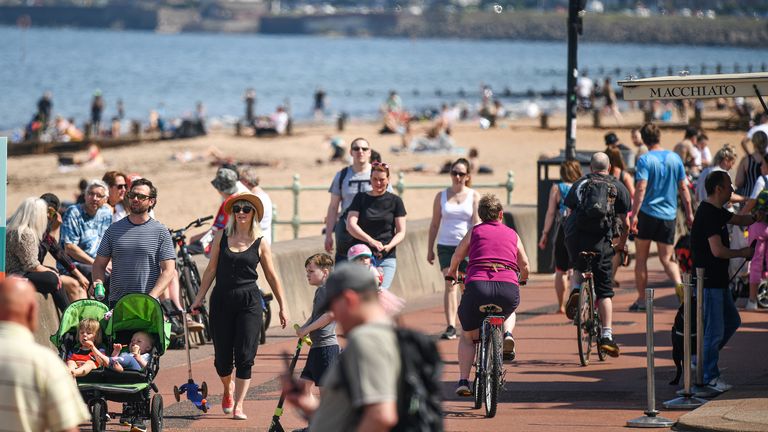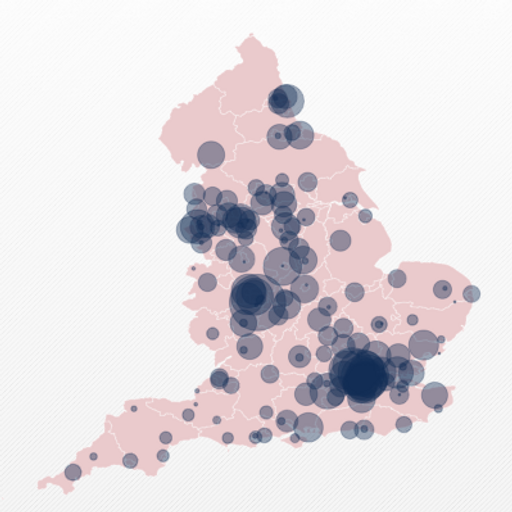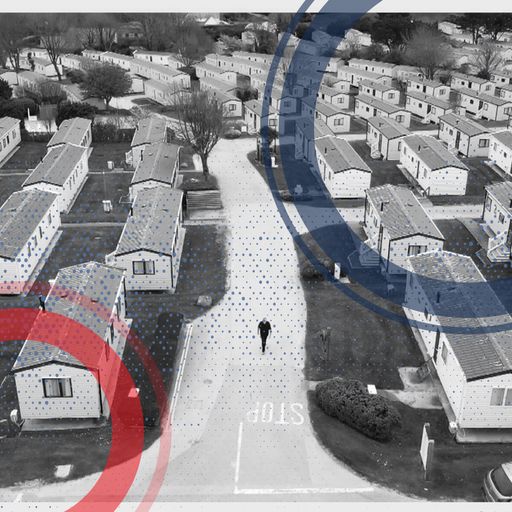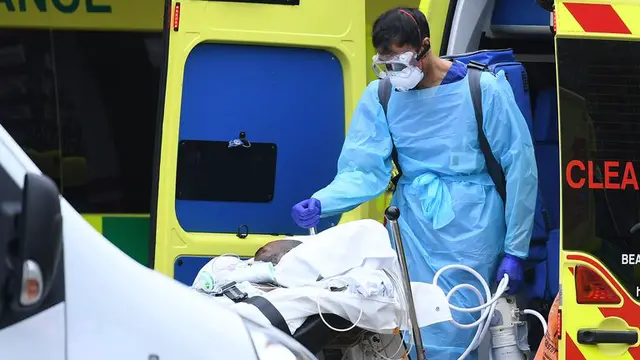Scientists have said that as many as 80 people will continue to die of COVID-19 every day in England, even without a second wave of the virus.
The warning comes as the government prepares to ease
coronavirus
lockdown measures in the country, saying it is safe to relax some restrictions on movement.
John Edmunds, who sits on the Scientific Advisory Group for Emergencies (SAGE), said that - based on the number of cases - he expected to see between 40 and 80 deaths a day in England alone.

Image:People are allowed to spend an unlimited amount of time outdoors if they social distance

Coronavirus UK tracker: How many cases are in your area – updated daily
He said epidemiologists would prefer to see restrictions on movement continue for a longer period to prevent that happening.
"I think we are taking some risk here," Professor Edmunds told journalists.
He said this was because the sheer number of
COVID-19
cases - known as the incidence - continued to stay at a relatively high level, despite the fall in the reproduction number.
Professor Edmunds said many scientists "would prefer to see the incidence driven down to lower levels, because that then means that we have fewer cases occurring before we relaxed the measures".
Yet he said the decision about where to set the number of cases was "clearly a political decision, not a scientific decision", because there was a trade-off between "the impact of the disease" and "the impact of the
lockdown
on wider society".
Professor Edmunds added that a further risk was posed by easing the lockdown measures "with an untested
test and trace
system".
Yet, he said, even an effective contact tracing scheme would not reduce the spread of the virus enough to make social distancing unnecessary.
"We cannot relax our guard by very much at all," he said.

Changes to lockdown across the UK
Although the government has focused on the
reproduction number
, which measures the speed of the spread of the virus, the number of cases is an equally important factor in determining the number of deaths.
The Office for National Statistics (ONS) has calculated that there are approximately 54,000 new coronavirus cases in the community in England each week, meaning there are around 8,000 new cases a day.
If the fatality rate was 1%, said Professor Edmunds, that meant 80 people would die a day.
If it was 0.5%, then 40 people would die a day.
"That's the numbers of deaths a day we might expect to see going forward," he said, adding that the true number of cases was likely higher, as the ONS did not measure cases in care homes or hospitals.

Life in lockdown: How the UK is changing in these extraordinary times
**:: Listen to the Daily podcast on **
Apple Podcasts
**, Google Podcasts
, Spotify
, Spreaker
**
Mark Woolhouse, who sits on the government's Scientific Pandemic Influenza Group on Modelling (SPI-M) committee, warned that - because of the prevalence of the disease in the community - it would be very hard to prevent a spike in cases as people began to move around.
"A second wave is a clear and present danger," he said
As a result, he said, strong anti-coronavirus measures were a "possible new normal", adding that: "If we don't like it, going to have to find other ways of living with COVID-19."
 简体中文
简体中文

